Located in the northern part of Asia, Mongolia has a continental climate and suffers from extremely cold weather in the winter.
Especially in Ulaanbaatar, the capital, nomadic people settled there only a few decades ago, deepening the economic difficulties and creating a shortage of jobs. In spite of the nation's recent economic development, with average annual growth in real income of about 10 percent, Mongolia remains poor due to a high inflation rate. In the winter, people spend some 45 percent of their income on fuel to keep the house warm. Moreover, the coal used for heating creates serious environmental problems, and respiratory disease is regarded as one of the most dangerous diseases for children.
Good Neighbors, a Korean non-governmental organization, established Good Sharing LLC in Mongolia in 2009. Its goal is to help people overcome their financial burden and to help with environment problems. At the heart of its efforts is the G-Saver, a heater, humidifier and air circulator.
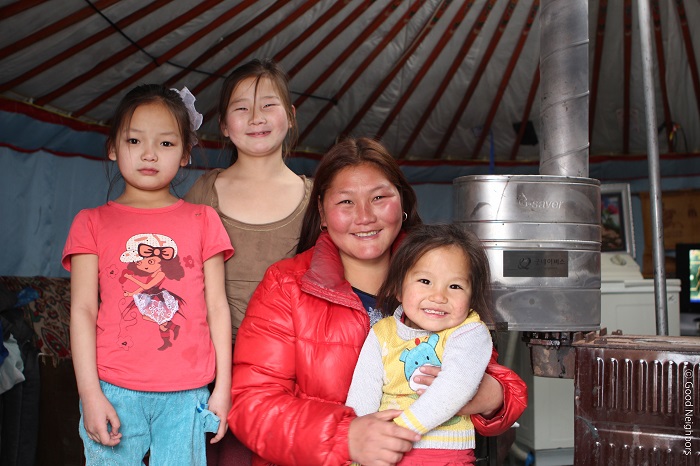
The G-Saver is a heater, normally installed on top of a stove, that helps to warm the inside of a ger, the rounded tent that constitutes the traditional Mongolian home. The basic principle of the "regenerator" is that it stores heat and allows it to flow back into the home, over and over again, to warm the living space. Simply put, it helps keep and store warmth already generated by the existing stove.
The G-saver has been playing a role in increasing the temperature indoors and also in reducing the cost of fuel. In 2014, nearly 20,000 G-savers were distributed across the nation, and Good Sharing is planning to distribute 72,000 more by 2016.
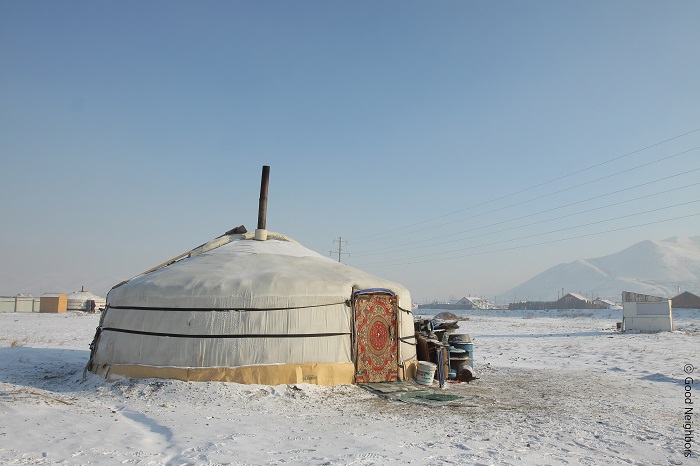
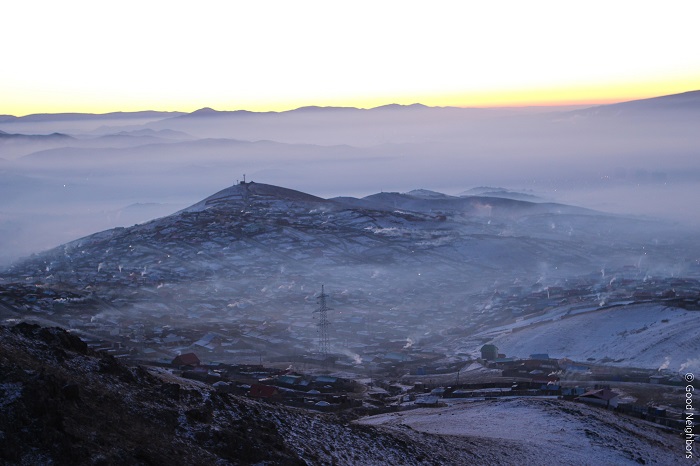
Good Sharing has also been doing more than just helping people overcome the cold weather. It has helped to plant seeds of hope in the hearts of around 90 local people. The two G-saver factories in Ulaanbaatar and Dzavhan employ people in manufacturing, distribution and finance. In Mongolia, with a somewhat weaker manufacturing base and fewer job opportunities, the Good Sharing companies are considered to be safe and attractive jobs.
Bolormaa, a worker at one of the Good Sharing factories, said, "I have long lived a nomadic life. Then I lost all my livestock and came to Ulaanbaatar in 2002. I now have the opportunity, just by luck, to work for Good Sharing. I worked in the manufacturing division for some time and have now been promoted to manager. I would like to express my gratitude to Good Neighbors for giving me such a great opportunity."
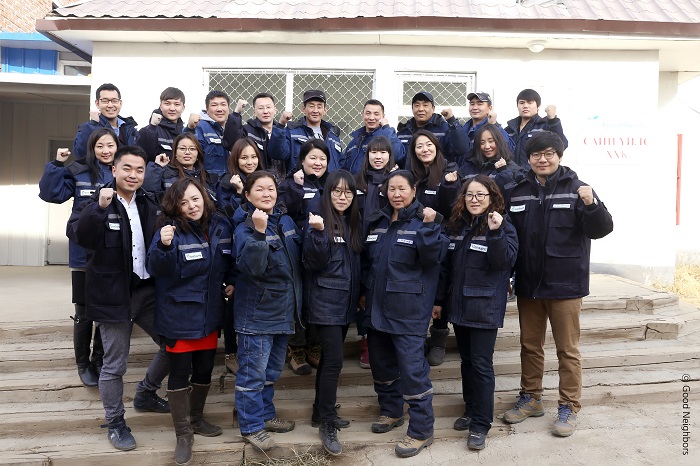
By Lee Seung-ah
photos courtesy of Good Neighbors
(*Photos cannot be used without the permission of Good Neighbors)
Korea.net Staff Writer
slee27@korea.kr
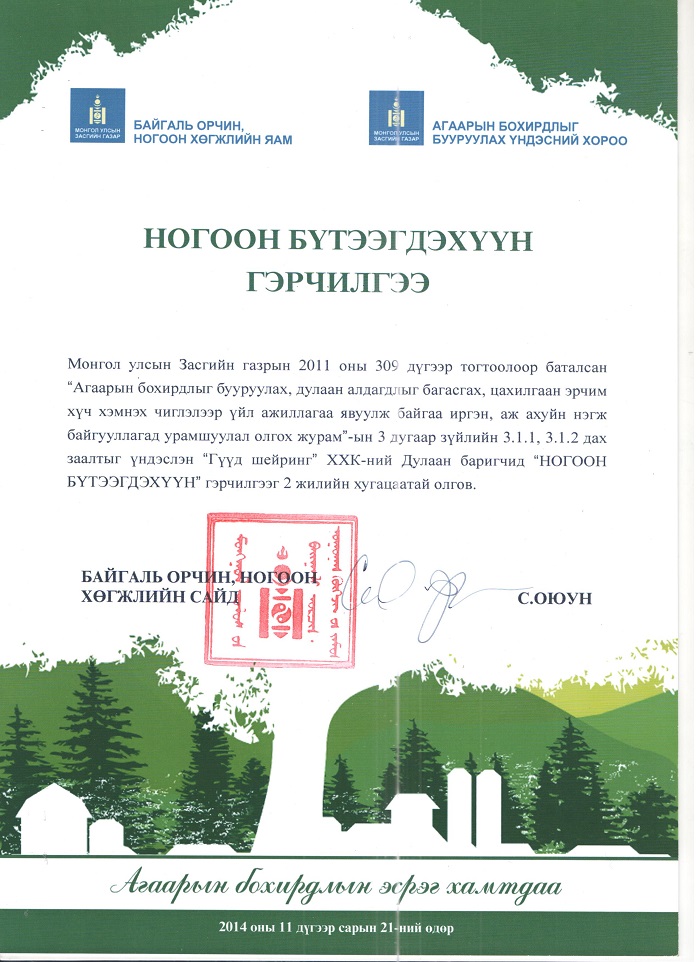
Especially in Ulaanbaatar, the capital, nomadic people settled there only a few decades ago, deepening the economic difficulties and creating a shortage of jobs. In spite of the nation's recent economic development, with average annual growth in real income of about 10 percent, Mongolia remains poor due to a high inflation rate. In the winter, people spend some 45 percent of their income on fuel to keep the house warm. Moreover, the coal used for heating creates serious environmental problems, and respiratory disease is regarded as one of the most dangerous diseases for children.
Good Neighbors, a Korean non-governmental organization, established Good Sharing LLC in Mongolia in 2009. Its goal is to help people overcome their financial burden and to help with environment problems. At the heart of its efforts is the G-Saver, a heater, humidifier and air circulator.

A family in Ulaanbaatar smiles as they use their G-Saver, an environmentally friendly heater for the home.
The G-Saver is a heater, normally installed on top of a stove, that helps to warm the inside of a ger, the rounded tent that constitutes the traditional Mongolian home. The basic principle of the "regenerator" is that it stores heat and allows it to flow back into the home, over and over again, to warm the living space. Simply put, it helps keep and store warmth already generated by the existing stove.
The G-saver has been playing a role in increasing the temperature indoors and also in reducing the cost of fuel. In 2014, nearly 20,000 G-savers were distributed across the nation, and Good Sharing is planning to distribute 72,000 more by 2016.


(Top) A ger is a traditional Mongolian home. (Bottom) The skies over Ulaanbaatar in the early morning are covered with a thick fog, possibly influenced by the use of coal as an energy supply.
Good Sharing has also been doing more than just helping people overcome the cold weather. It has helped to plant seeds of hope in the hearts of around 90 local people. The two G-saver factories in Ulaanbaatar and Dzavhan employ people in manufacturing, distribution and finance. In Mongolia, with a somewhat weaker manufacturing base and fewer job opportunities, the Good Sharing companies are considered to be safe and attractive jobs.
Bolormaa, a worker at one of the Good Sharing factories, said, "I have long lived a nomadic life. Then I lost all my livestock and came to Ulaanbaatar in 2002. I now have the opportunity, just by luck, to work for Good Sharing. I worked in the manufacturing division for some time and have now been promoted to manager. I would like to express my gratitude to Good Neighbors for giving me such a great opportunity."

Workers at the Mongolian branch of Good Neighbors pose for a group photo.
By Lee Seung-ah
photos courtesy of Good Neighbors
(*Photos cannot be used without the permission of Good Neighbors)
Korea.net Staff Writer
slee27@korea.kr

Good Neighbors receives a Green Certificate from the Ministry of Nature, Environment and Green Development of Mongolia in 2014.